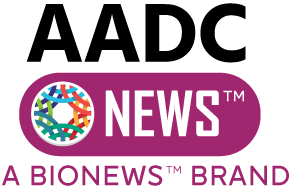Sharing Data, New Strategies, Are Focus of Rare Disease Workshop
RDCA-DAP Workshop Bringing Together AADC, Other Rare Disease Advocates

The first in-person workshop of the Rare Disease Cures Accelerator-Data and Analytics Platform (RDCA-DAP) initiative — going on its fourth edition and set for Sept. 13-14 — will focus on developing a treatment for rare disorders, such as aromatic l-amino acid decarboxylase (AADC) deficiency, through data sharing and collaboration.
The annual workshop, to be conducted in person for the first time since the RDCA-DAP launch in 2019, will feature speakers from the U.S. Food and Drug Administration (FDA), industry, and academia, as well as patient representatives.
It aims to bring together the community of people with a rare disease — such as AADC deficiency — and foster data sharing to accelerate the development of novel therapies for these disorders.
This year’s event will be held at the Westin Crystal City Reagan National Airport, in Arlington, Virginia. Registration is free and open to all members of the rare disease community.
Virtual registration is available for the workshop’s first day, though limited to live-stream viewing. Day 2 of the workshop will be in person only.
Theresa Mullin, PhD, the associate director for strategic initiatives at the FDA’s Center for Drug Evaluation and Research (CDER), is a keynote speaker. Other FDA representatives also will speak at the workshop.
In addition to the speakers, the meeting will feature case studies shared by users on RDCA-DAP’s platform, sessions on how to accelerate therapeutic development for rare diseases, and discussions on data privacy, among other topics. The complete agenda is available on the RDCA-DAP website.
Attendees will learn about the work conducted so far by the RDCA-DAP on therapeutic development in rare diseases and its future impact. In parallel, they’ll have the opportunity to explore RDCA-DAP’s support across rare diseases, as well as gain access to perspectives from patients, regulators, and industry players.
Importantly, participants of the workshop will learn about how the rare disease community and patient advocacy groups can join efforts and promote actions to speed therapeutic development.
There is no cure for AADC deficiency, but treatment is available to alleviate some symptoms and improve the quality of life of patients.
RDCA-DAP was built as a partnership between the Critical Path Institute (C-Path), the National Organization for Rare Disorders (NORD), and the FDA, which provided the funds for its launch. Since then, other collaborations have been fostered between several stakeholders of the rare disease community.
A key goal of the platform was to create a centralized and standardized infrastructure for collecting data and making it available for all members. The ultimate aim is to support and accelerate therapeutic innovations for rare diseases.
Access to the platform can be requested directly at the website. Institutions and companies interested in submitting patients’ data can contact the project team at [email protected] or via the C-Path’s website.







